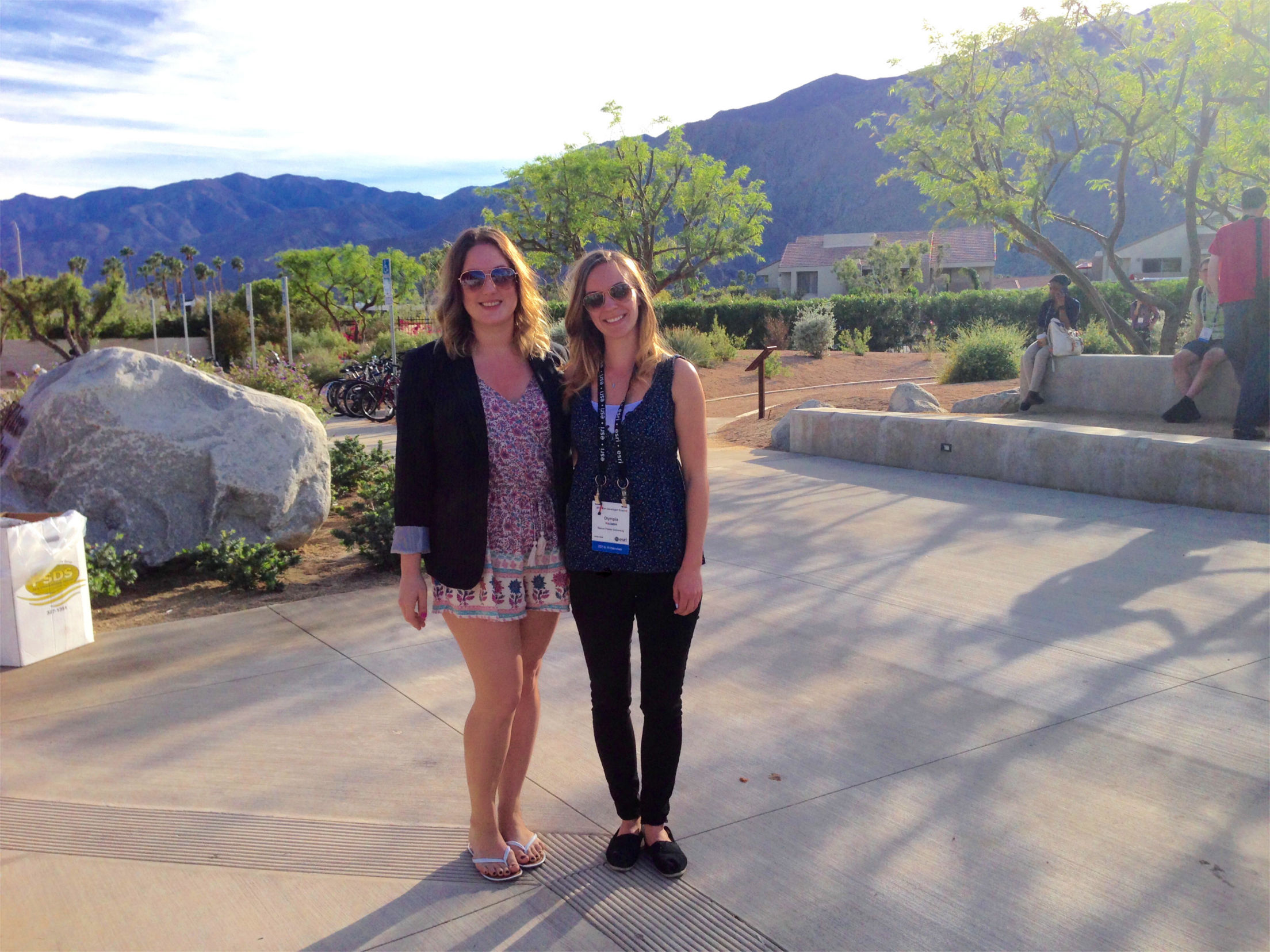Impressions from the 2016 Esri Developer Summit: Taylor Anderson
Taylor Anderson is a PhD candidate from the Department of Geography at Simon Fraser University who attended the Esri Developer Summit this year as part of the ECCE Student Associate program.
As we landed in Palm Springs for the 2016 Esri Developer Summit, airline workers chased huge tumbleweeds across the tarmac, mountains crowded the skyline, and palm trees (naturally) could be spotted everywhere. Having made my way from Vancouver, I was excited for a week packed with interesting sessions relating to my research and of course, the sun.
Once we settled into our accommodations, my colleague who works with me in SFU’s Spatial Analysis and Modeling lab, Olympia, and I headed to the conference centre to collect our badges and check out the GIS Solutions Expo. The Expo was an impressive display of GIS technology including some new Esri innovations and industry partnerships all geared toward solving large scale problems, ranging from big data storage, retrieval, and analysis, to ready-made apps for a number of applications. Olympia and I looked through the list of technical sessions and decided which ones we were going to attend before heading back to unpack.

The next morning, we attended the plenary session that showcased all of Esri’s current focuses and introduced us to many of the themes the technical sessions would cover. The conference had a general theme of big data management, big spatiotemporal data management, web applications, real-time data streams and analytics, and 3D. It was very interesting to see the rise of these themes in industry and technology, which naturally parallel with the rise of theory, research, and applications in GIScience literature that I have been engaged in as a PhD student. For example, I have been reading a lot regarding big data, real-time data streams (from Twitter or from other sensors), and spatiotemporal big data management, and the Developer Summit gave me the first-hand opportunity to see the theory and methodologies in the literature implemented as technology that is working for real companies trying to solve problems.
My favorite part of the Esri Developer Summit was listening to the fantastic keynote presenter, Douglas Crockford. Crockford wrote a very popular book “JavaScript: The Good Parts”, published in 2008, which highlights the few brilliant components of JavaScript (developed and implemented in only 10 days) among a multitude of issues with the language. It was a pleasure to listen to him discuss issues and challenges in programming and where he sees programming evolving to, specifically for application development. He gave particular foresight to the future of programming, anticipating that new computer languages will be developed with inherent capability to work with distributed systems and high performance parallel programming environments necessary for dealing with the volume and velocity of big data.
Olympia and I had the opportunity to attend a meeting for members of the Esri Development Centers (an international program similar to the ECCE program), which was intended to be a discussion about how the conference aligns with our own research goals and how Esri can help us to meet those goals. It provided us with some insights into the successes and challenges that others in academia experience in working with GIS technology. Following the session, we spent some time over dinner with the rest of the ECCE group, discovering that everyone at the table was from Waterloo/Kitchener, Ontario area, which was funny. Cam and I spent a great deal of our conversation sharing our experiences in grad school/industry. The undergrads in the group were very interested in our experiences since several of them plan to apply for Master’s programs, so it was sort of an informal question and answer session.
Overall, it was a wonderful conference where I had the opportunity to engage in conversation with others working and studying in the same field as I – a rare experience. I am very grateful to Esri Canada for giving me this opportunity, and I cannot thank Cam, Jonathan, and Michael enough for being such great hosts.
